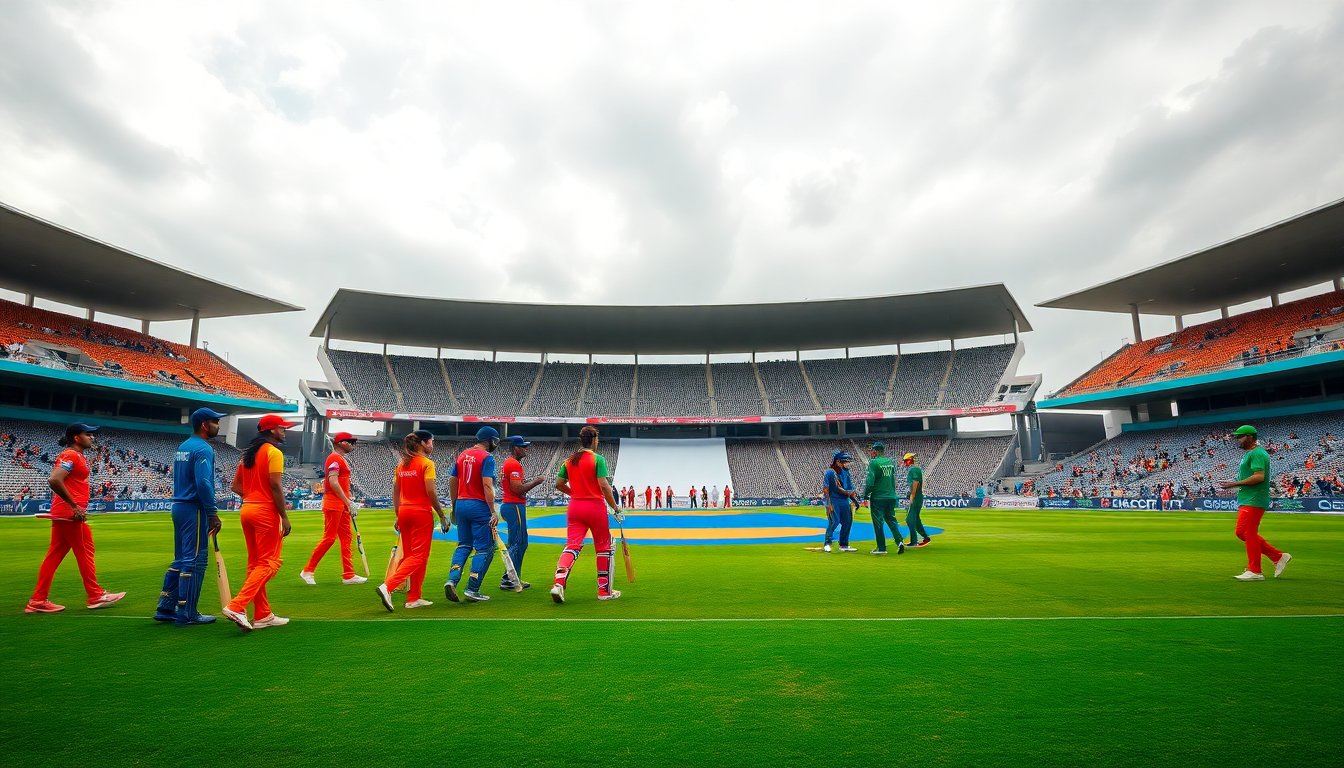Table of Contents
The anticipation surrounding the cricket match between India and Pakistan in the ICC Women’s Cricket World Cup 2025 is palpable. However, this highly awaited event faces complications due to ongoing political tensions and the possibility of rain in Colombo. Scheduled for Sunday, October 5, at 09:30 GMT at the R Premadasa Stadium, the match is drawing attention for reasons beyond the game itself.
Both teams aim to focus on cricket, but external factors may divert their attention. The historical backdrop of their rivalry, marked by both sportsmanship and political strife, adds complexity to the match. The captains’ handshakes at the coin toss and post-match interactions will likely be scrutinized, considering the controversies from previous encounters.
Historical context of the rivalry
In the recent Asia Cup 2025, the Indian team and their captain did not shake hands with their Pakistani opponents in all three matches, creating a stir that overshadowed the actual cricketing events. This backdrop has led to speculation regarding a similar approach during the World Cup, with the Board for Control of Cricket in India (BCCI) hinting at a potential continuation of this ‘no handshake’ policy.
BCCI Secretary Devajit Saikia expressed uncertainty on the matter, stating on the BBC’s Stumped podcast that the relationship with Pakistan remains unchanged, indicating that the focus might shift more toward the game and less on traditional gestures of sportsmanship.
The players’ perspective
Despite the surrounding noise, the players strive to maintain concentration on the match itself. Pakistan’s captain, Fatima Sana, acknowledged external pressures but emphasized the importance of focusing on their performance. “We try to stay focused on the game because the World Cup is an event every player waits for,” Sana remarked following her team’s loss to Bangladesh in their opening game.
In contrast, the previous World Cup in New Zealand showcased a lighter side of the rivalry when players shared moments of camaraderie. During that tournament, then-captain of Pakistan, Bismah Maroof, garnered admiration as Indian players interacted with her infant daughter, sharing laughter and capturing memories. This spirit of friendship was a welcome sight amid fierce competition.
Reflecting on that experience, Sana expressed hope that players could still maintain healthy relationships with opponents while keeping the focus on the match. “As players, we all enjoy such moments, but the main thing is to stay focused on the game,” she noted.
Preparing for the big match
As the match approaches, both teams prepare for what promises to be a highly charged atmosphere. India, fresh off a win against Sri Lanka, is expected to field a consistent lineup, aiming to build on their momentum. The last encounter between the two teams in the ICC Women’s T20 World Cup 2024 saw India secure victory, reinforcing their dominance in women’s ODIs, where they hold an impressive 11-0 record against Pakistan.
Pakistan, conversely, is eager to regain their footing following a rough start in the World Cup. The pressure is palpable, especially with the entire cricketing world watching their every move. Sana candidly acknowledged this, stating that handling pressure effectively will be crucial: “There is pressure, but the main thing is how we handle it.”
Weather concerns and their implications
As if political and competitive pressures weren’t enough, the weather forecast for Colombo also poses a challenge. Rain is expected in the early hours of Sunday, with forecasts suggesting cloudy skies and potential showers throughout the day. This may lead to interruptions, affecting both players and spectators alike.
Both teams aim to focus on cricket, but external factors may divert their attention. The historical backdrop of their rivalry, marked by both sportsmanship and political strife, adds complexity to the match. The captains’ handshakes at the coin toss and post-match interactions will likely be scrutinized, considering the controversies from previous encounters.0
Both teams aim to focus on cricket, but external factors may divert their attention. The historical backdrop of their rivalry, marked by both sportsmanship and political strife, adds complexity to the match. The captains’ handshakes at the coin toss and post-match interactions will likely be scrutinized, considering the controversies from previous encounters.1


